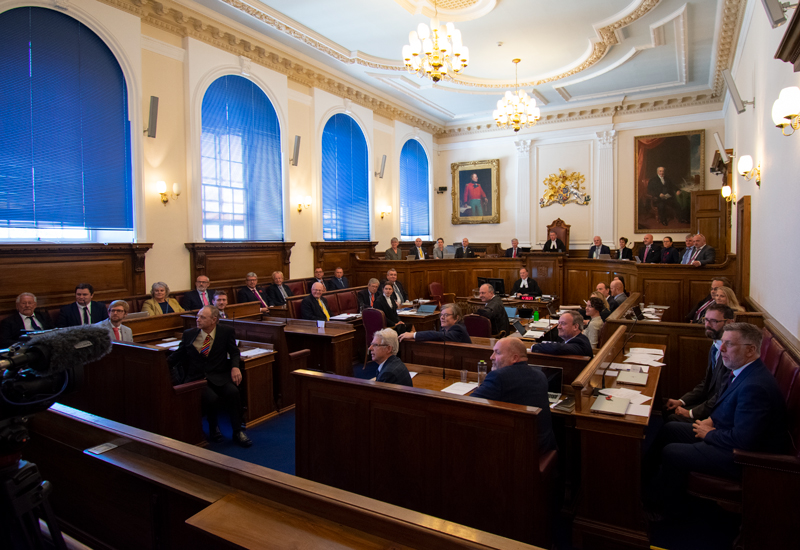


The States’ proposed priorities for the next year and beyond will be released imminently.
Actually, the senior committee, Policy & Resources, is already late. Its flagship annual report, the Government Work Plan, was meant to be out by last Friday at the latest. It now needs the special permission of the Bailiff to allow it to be debated, as originally intended, on 14 June.
But those crafting it, led by Deputy Heidi Soulsby, can perhaps be forgiven their tardiness. It must be fiendishly difficult to propose a policy programme with no idea of how much or little is available to spend beyond the very short term.

Pictured: The next edition of the States' work plan was meant to be published last week and is now expected this week.
Of course, it wasn’t meant to be like this.
When the States took office, the big financial challenge was known. The rising costs of pensions and healthcare in particular are forecast to create a deep black hole in States’ finances of around £85million a year, possibly by as soon as the middle of this decade.
At one time, the Policy & Resources Committee had a clear plan. Summer 2021: agree in principle to increase taxes, mainly with a new Goods and Services Tax. Summer 2022: agree the details, including whether GST should be 8% or 5%, and get on with preparing for its introduction.
But that plan has, to put it bluntly, fallen apart. In recent months, the overwhelming majority of deputies have given the impression of being even more hostile to GST than public opinion, which is hostile enough. Policy & Resources had to withdraw its first attempt to get GST through the States and now it has postponed the next instalment of the tax debate by several months. There are more popular – or rather less unpopular – tax rises than GST, such as income tax, but the Committee thinks they would either raise too little revenue or risk making the island uncompetitive.
The Committee has soldiered on taking its tax roadshow around the island. It deserves credit for the hours it has spent openly discussing tax and spending with the public. And in fairness to him, the Committee’s President, Deputy Peter Ferbrache, hasn’t wavered despite the political difficulty. He would rather avoid tax rises but prefers GST over the other viable option of absolutely slashing spending on public services and benefits.
But Policy & Resources’ course on fiscal policy looks less and less clear and more confusing.

Pictured: The Policy & Resources Committee appears to have made little progress trying to persuade other deputies to back GST since having to withdraw its original proposals last summer.
It has enough experienced members to know that it almost certainly can’t get GST through the States. Its Treasury Lead, Deputy Mark Helyar, ostensibly a tax cutter but now the proposer of the largest personal tax increases in living memory, increasingly gives the impression of wanting to be anywhere but where he is. The latest public event on tax – an island-wide question and answer session online – was led by someone who doesn’t even sit on Policy & Resources.
Officially, the Committee has slightly paused its campaign for GST and the rest of its original package while it acquiesces to Deputy Charles Parkinson’s demand to look again at tax on company profits. But the one thing Deputy Helyar has been clear and consistent about is that there is not nearly enough headroom on company tax for it to fill a substantial part of the emerging black hole in public finances.
If you could gamble on the outcome of States’ debates, it is likely that by now the bookies would have stopped taking bets on this Assembly ending its term without deciding on £85million of tax rises or service cuts.
That may help the States’ approval ratings – because doing something is almost always more unpopular than doing nothing.
But it would be damaging to the island in the long term.
Meanwhile, in the short term, for as long as the big questions around public finances go unanswered, the task of putting together a coherent Government Work Plan and planning policies and services can only be partially successful or, frankly, worthwhile.
P&R wants more time before States debate GST and other taxes
FOCUS: Opposition across the States to P&R's latest GST plan
P&R wants to win public support for GST ahead of summer debate
EXPLAINED: Why the States' leaders believe GST is needed now